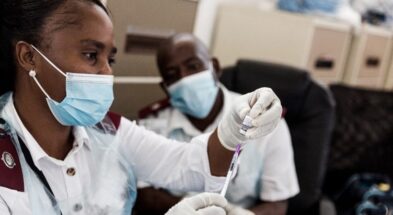Nearly six months after the first cases have been reported in Equateur Province of the Democratic Republic of the Congo (DRC), World Health Organization declared the end of the 11th Ebola outbreak, 42 days after the last confirmed case tested negative. The outbreak that had created several logistical challenges as it spread across communities scattered in dense rain forests to crowded urban areas was surmounted only due to the government and local communities’ combined effort and the WHO and its partners.
In its statement, WHO congratulated responders and all those who tirelessly tracked cases, provided treatment, engaged communities, vaccinated more than 40,000 people at high risk, and thanked a wide range of partners for their support. ARKTEK freezers greatly assisted the process of vaccination, innovative cold chain storage that kept the Ebola vaccine at temperatures as low as -80 degrees Celsius in the field for up to a week, enabling responders to vaccinate people in communities without electricity.
“Overcoming one of the world’s most dangerous pathogens in remote and hard to access communities demonstrates what is possible when science and solidarity come together. Technology used to keep the Ebola vaccine at super-cold temperatures will help bring a COVID-19 vaccine to Africa. Tackling Ebola in parallel with COVID-19 hasn’t been easy, but much of the expertise we’ve built in one disease is transferrable to another and underlines the importance of investing in emergency preparedness and building local capacity,” said DrMatshidisoMoeti, WHO Regional Director for Africa.
The outbreak in Equator Province of western DRC, announced on 1 June 2020, came as another Ebola outbreak in the eastern part of the country was winding down. The province was also the site of the country’s 9th Ebola outbreak, which was overcome in a little over three months in 2018. However, the response to the 11th Ebola outbreak had to contend with the COVID-19 pandemic, which strained resources and created difficulties around experts and supplies’ movement. There were also challenges around a large number of cases in remote communities which were often only accessible by boat or helicopter and at times, community resistance hampered response efforts.
At the end of the current 11th Ebola outbreak, 119 confirmed cases, 11 probable, 55 deaths, and 75 people had recovered. While the 11th outbreak is over, there is a need for continued vigilance and maintaining strong surveillance as potential flare-ups are possible in the months to come. The end of this outbreak serves as a reminder that governments and partners must continue to focus on other emergencies, even as the fight against COVID-19 persists. There is a need for greater investment in strengthening countries’ core capacities in the implementation of the International Health Regulations. Enhancing preparedness will lead to an improved response to threats arising from epidemic-prone diseases and result in less social and economic impact.



















